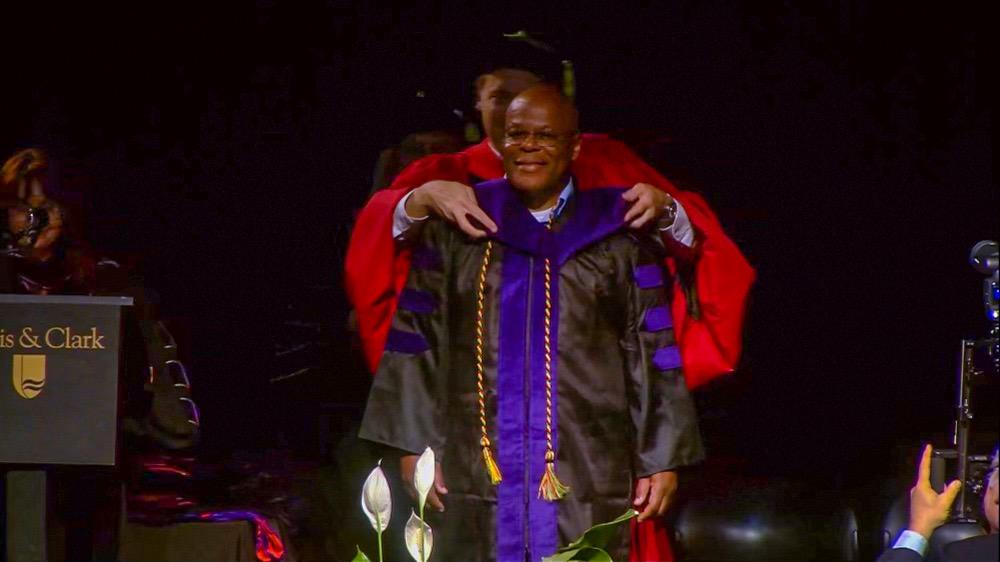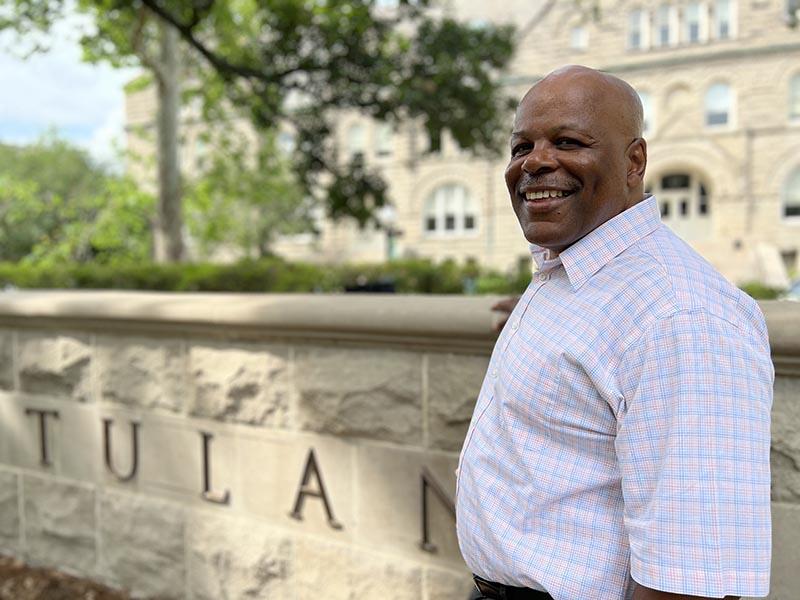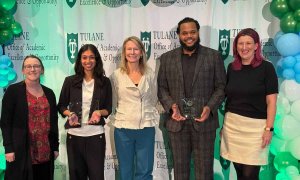Tulane SoPA plays vital role in alum’s journey from prison to JD
Calvin Duncan is a 2019 alumnus of the Tulane University School of Professional Advancement (Tulane SoPA) and a 2023 Lewis & Clark Law School graduate. His long list of accolades and accomplishments precedes his entry into any room.
“As a student, Calvin was driven and focused on his goal of attending law school,” said Suri Duitch, Ph.D, Dean of Tulane SoPA. “Calvin fit well into our student population, which is filled with adult learners seeking to grow professionally and to improve their communities.”
For Duncan, who earned a Bachelor of Arts in General Legal Studies, Tulane SoPA was formative in his educational journey through the legal profession.
“I wish that more local young people knew about the opportunities at Tulane,” said Duncan, a native of New Orleans. “Those young people need hope and Tulane can be that hope.”
The sum of his life beginning at age 19 is this — accused and wrongly convicted of murder; sentenced to life imprisonment; 28.5 years served in state prison; released and exonerated with the help of Innocence Project New Orleans.
Given the injustice committed against him, one might think that Duncan would carry resentment toward the American judicial system. Instead, he is grateful for his opportunities, forgiving, and “called to help all those still behind bars.”
“While serving a life sentence, I was transported (to Tulane Law School) from Angola to pick up some law books that were being donated to the prison,” recalls Duncan of his first-time stepping foot on Tulane’s Uptown campus. “I walked into the library, and I knew that one day I would go to this school.”
At the time, his thought was just a dream. “Black men go into the penitentiary, but most times we don’t come out,” he said.
“I wish that more local young people knew about the opportunities at Tulane. Those young people need hope and Tulane can be that hope.”
— Calvin Duncan, SoPA '19
Duncan never lost hope. He spent his time filing petitions for himself and prison mates, particularly those convicted through non-unanimous jury trials. Up until 2020, Louisiana and Oregon, the state where he attended law school, were the only two states where this was the law. After a successful referendum to end them in Louisiana, non-unanimous jury convictions were also deemed unconstitutional under a U.S. Supreme Court decision in Ramos vs. Louisiana.
During his 28+ years in prison, he gained a reputation as a “good jailhouse lawyer” among his peers. There were many successful appeals to happen before his own day of freedom—each one bittersweet.
He became a fervent reader of all literary genres, from the “Count of Monte Cristo” to the law books he’d picked up from Tulane years earlier. Among the first of his law readings was, “One L: The Turbulent True Story of a First Year Law at Harvard Law School.” It was then that he began envisioning his life as a lawyer.
“I got pretty good at law. Good enough to teach a two-hour law class at the prison every Saturday morning,” said Duncan. “It was great. I had about 35 inmates who would attend and I did that for about 15 years.”
Duncan hopes his future lands him back in the classroom—as a teacher—again.
“I will always teach in prisons, but I also want to teach in other classrooms and in the community where I can have discussions about what is going on in the judicial system,” said Duncan.
Above all, he wishes for his testimony to be an encouragement to those who believe they are in an impossible situation.
“We all fight different fights. I don’t even think I could fight the fight that I fought again if I had to,” he said. “I was never supposed to get out of prison. I was never supposed to get those law books. I was never supposed to go to Tulane. I was never supposed to go to law school.
Do the impossible.”






